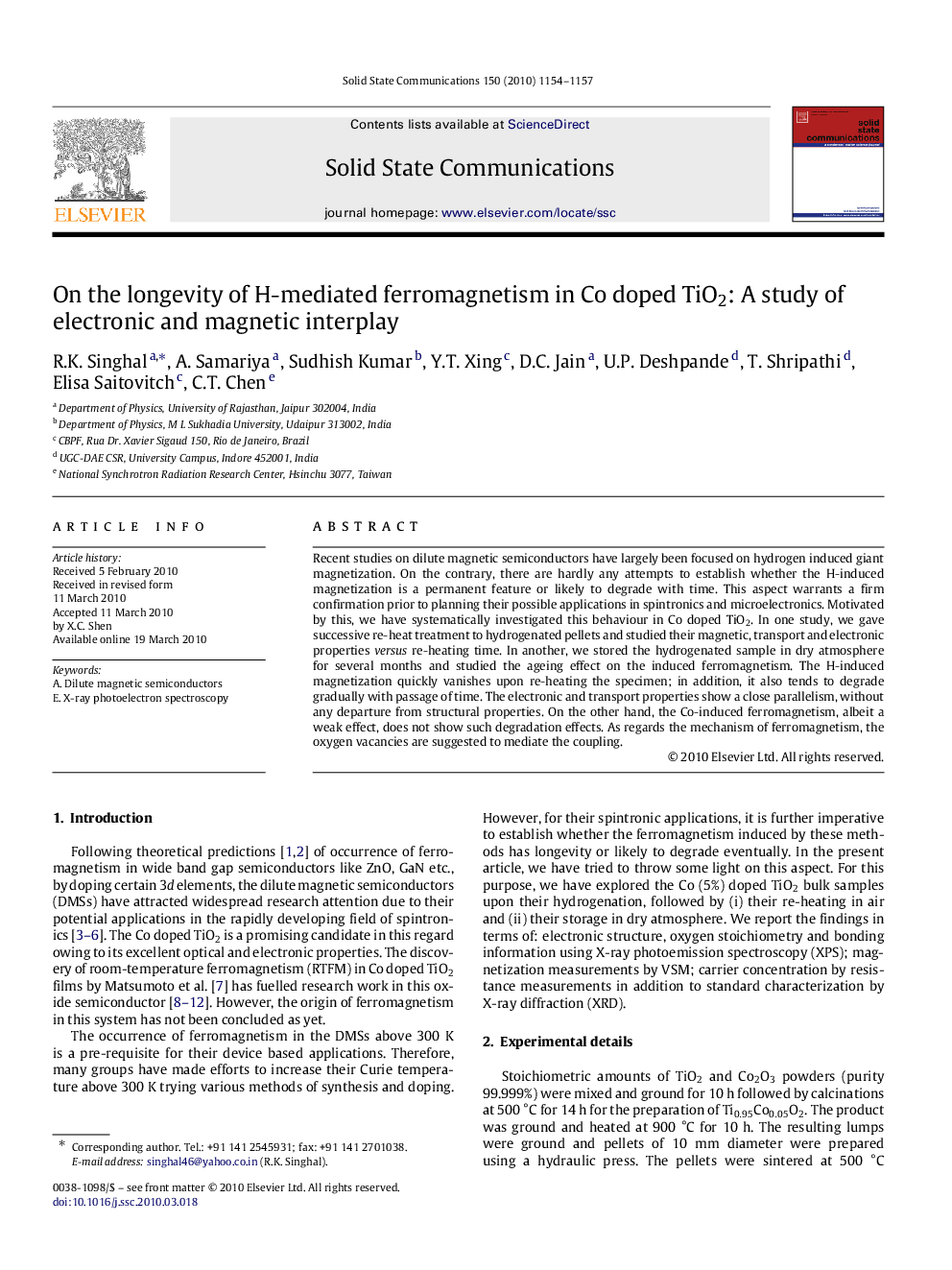| Article ID | Journal | Published Year | Pages | File Type |
|---|---|---|---|---|
| 1594562 | Solid State Communications | 2010 | 4 Pages |
Recent studies on dilute magnetic semiconductors have largely been focused on hydrogen induced giant magnetization. On the contrary, there are hardly any attempts to establish whether the H-induced magnetization is a permanent feature or likely to degrade with time. This aspect warrants a firm confirmation prior to planning their possible applications in spintronics and microelectronics. Motivated by this, we have systematically investigated this behaviour in Co doped TiO2. In one study, we gave successive re-heat treatment to hydrogenated pellets and studied their magnetic, transport and electronic properties versus re-heating time. In another, we stored the hydrogenated sample in dry atmosphere for several months and studied the ageing effect on the induced ferromagnetism. The H-induced magnetization quickly vanishes upon re-heating the specimen; in addition, it also tends to degrade gradually with passage of time. The electronic and transport properties show a close parallelism, without any departure from structural properties. On the other hand, the Co-induced ferromagnetism, albeit a weak effect, does not show such degradation effects. As regards the mechanism of ferromagnetism, the oxygen vacancies are suggested to mediate the coupling.
